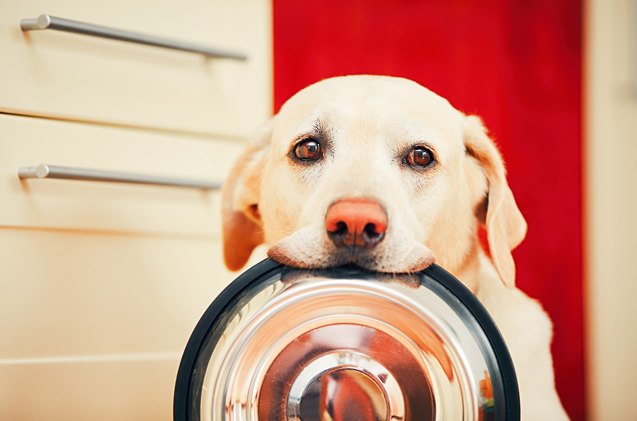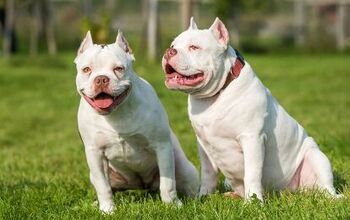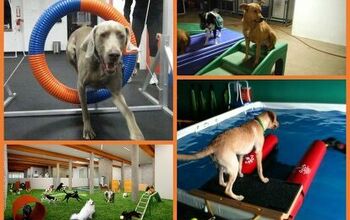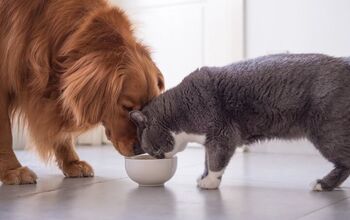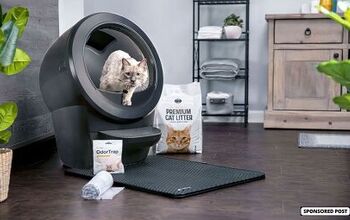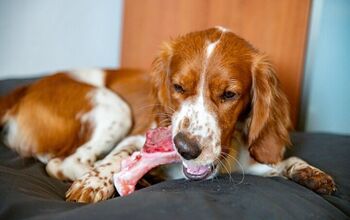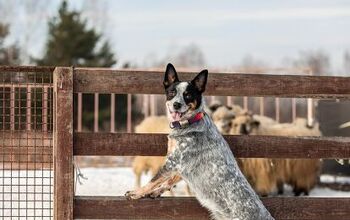What You Need to Know About Proper Canine Nutrition

You probably already know that dogs are carnivores, but what exactly does that mean? Being a carnivore means that the majority of your dog’s nutrition should come from animal products, not plant products. But you can’t just feed your dog a bowl of chopped meat and expect him to be healthy. Like people, they need a balanced diet. Here are the basics about canine nutrition.
The Top Nutrients Dogs Need
All living things require a balance of nutrients and, for dogs, there are main nutrients you need to think about. The most important nutrients are protein, fat, and carbohydrates – these are called macronutrients because they are the nutrients that give your dog energy. Micronutrients are the vitamins and minerals your dog needs to balance out his nutrition. Proteins are made up of amino acids and they help your dog build strong bones and muscles. There are twenty different amino acids and your dog’s body is capable of synthesizing (producing) ten of them –the remaining ten are called essential amino acids because they must come from your dog’s diet. The best sources of essential amino acids are meats, poultry, fish, and eggs.
Related: Supplements and Diet For Senior Dogs
After protein, the next most important nutrient for dogs is fat. This may not sound appetizing, but fat is actually the most highly concentrated form of energy for dogs and it also supports the health of his skin, coat, and immune system. Like proteins, fats should come from animal-based sources like chicken fat or salmon oil. Even though dogs are carnivores, they still need some dietary fiber in their diets to facilitate healthy digestion – this comes from digestible carbohydrates like whole grains and fresh fruits and veggies. Water is also a key nutrient that your dog needs on a daily basis – not only does it hydrate him, but it also helps to facilitate healthy and regular digestion.
After the key macronutrients come the micronutrients – vitamins and minerals your dog needs for complete and balanced nutrition. Vitamins are organic substances that help your dog’s body convert food into energy. Vitamins are only needed in small quantities but the most important vitamins for dogs include vitamins A, D, E, K, C and B vitamins. Minerals are inorganic compounds that help your dog grow and maintain healthy bones and teeth. The most important minerals your dog needs are calcium, phosphorus, magnesium, potassium, sodium, and chloride – these are referred to as macrominerals. Other minerals your dog needs in smaller quantities include zinc, sulfur, iodine, iron, selenium, copper, manganese, chromium, cobalt, and silicon; these are referred to as microminerals.
Tips for Meeting Your Dog’s Nutritional Needs
The basic nutritional needs for all dogs are the same. Your dog’s diet should be primarily comprised of animal-based proteins and fats, supplemented with small amounts of digestible carbohydrates to provide dietary fiber as well as essential vitamins and minerals. When it comes to calorie needs, however, it can be very different from one dog to another. You may be surprised to learn that small-breed dogs actually have higher calorie needs than large-breed dogs – at least in terms of calories per pound of bodyweight. For example, a 110-pound Mastiff might need a total of 2,500 calories per day while an 11-pound Bichon Frise only needs about 450 calories. If you divide it out, however, you will find that the Mastiff needs about 23 calories per pound of bodyweight while the Bichon Frise needs closer to 41 calories per pound. This is because small-breed dogs have very fast metabolisms so they need a high-calorie diet to support their energy needs.
Related: Meal Feeding vs Free Feeding Dogs
The best way to ensure that your dog gets both the nutrients and the calories he needs is to provide him with a high-quality commercial diet that is formulated for dogs of his size and activity level. When you bring home your puppy you should be feeding him a small-breed or large-breed puppy formula to make sure he gets the protein he needs to develop strong bones and muscles as well as the fat he needs for energy. Once your puppy grows up, feed him a large-breed adult or small-breed adult formula. If your dog is very active or if you are training him for hunting or dog sports, consider a working breed or active breed formula because these are higher in fats which boosts the calorie content of the food.
Making sure that your dog’s nutritional needs are being met is not as complicated as you might imagine. As long as you understand the top nutrients dog needs and you know how to differentiate between a high-quality and low-quality dog food, your dog will get all the nutrients he needs.

Kate Barrington is the loving owner of two cats (Bagel and Munchkin) and a noisy herd of guinea pigs. Having grown up with golden retrievers, Kate has a great deal of experience with dogs but labels herself a lover of all pets. Having received a Bachelor's degree in English, Kate has combined her love for pets and her passion for writing to create her own freelance writing business, specializing in the pet niche.
More by Kate Barrington



